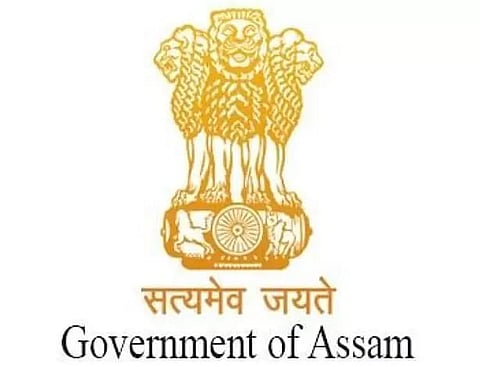
- Home
- Live Blog
- Breaking News
- Top Headlines
- Cities
- NE News
- Sentinel Media
- Sports
- Education
- Jobs

Partha Pratim Mazumder
(The writer can be reached at parthapratimmazumder1988@gmail.com)
There is a famous English proverb which says that 'Rome was not built in a day'. Similarly, the culture of a particular society can never evolve in a single day. It takes hundreds and hundreds of years for any culture to establish itself. However, it is very difficult to pin-point the exact date as to when a particular culture evolved. It is the duty of every citizen to value and preserve the rich heritage of our composite culture. The art and culture of our nation are a vast continuum, evolving incessantly since time immemorial. Naturally, preservation and conservation of India's rich cultural heritage and promotion of all forms of art and culture, both tangible and intangible, including monuments and archaeological sites, anthropology and ethnology, folk and tribal arts, literature and handicrafts, performing art of music-dance-drama and visual arts of paintings-sculpture-graphics is essential and assumes a lot of importance.
On the other hand, Assam's life and culture are deeply influenced by the rejuvenating splashes of the Brahmaputra, India's only male river and one of the most powerful rivers of the world. To pay fitting tribute to the river's life-giving prosperity and countless blessings, a five-day-long event, Namami Brahmaputra was organized under the visionary leadership of Sarbananda Sonowal, Chief Minister of Assam, across all districts along the Brahmaputra in its entire stretch from Sadiya to Dhubri. It served as an ideal platform to showcase Assam's tremendous potential as a state brimming with trade, tourism and cultural opportunities.
Since the time of independence, the crux of all culture development plans have been the preservation of cultural heritage with greater emphasis on the thread of continuity which has resulted in the binding of dissimilarities into a synergistic whole. The main goal has always been establishment of cultural institutions in the field of archaeology, anthropology and ethnography, archives, libraries, museums, and performing arts, including academics.
Due to the two UNESCO conventions, one 'to safeguard and protect intangible heritage' and the other on 'cultural diversity', the government has initiated proactive measures to safeguard and protect cultural diversity and the various expressions of intangible heritage facing the risk of disappearance. The upkeep and maintenance of museums and archaeological sites will considerably improve with the introduction of modern technology and redeployment of existing staff. To start with, security services have already been outsourced and the possibility for outsourcing in areas like consultancy and maintenance needs to be examined in detail. Publication through private sector should be encouraged as they have all the modern technology and know-how to produce the best from the worst. Repository work is obviously very well done by the private sector. As the Ministry of Culture has been facing recurrent cuts in outlay due to poor spending during the first two quarters, proper expenditure planning in the field of art and culture, several schemes are being implemented without assessing the process and impact.
On the other hand, started by the Akhil Bhartiya Vidhyarthi Parishad (ABVP), back in the 1960s, SEIL (STUDENTS EXPERIENCE IN INTER-STATE LIVING (SEIL) is continuing to promoting cultural exchange programme focuses on giving the north-eastern students and their families, the kind of exposure that they lack. Every alternate year, a group of delegates from the north-eastern part of India travels to the north and south of India. There, they are made aware of the culture, food and heritage of the various states that they visit. In spite of having such a vast potentiality the region has not been able to develop cultural tourism for the following reasons:
1. Poor state of publicity: Though the state has a lot of cultural resources, it has not been able to give due publicity in national and international arena and thus tourist mobility is restricted to only a couple of destinations.
2. Lack of renovation of archeological spots and monuments- Only a couple of archeological spots and monuments have been renovated so far.
3. Inadequate infrastructural facilities- Infrastructural facilities are highly inadequate in the state for tourism, both in terms of transportation and accommodation.
3. Lack of imaginative organization- Imaginative organization of the shows of traditional local art, culture, dance, drama, music session, fairs and festivals for the benefit of the tourists is lacking.
5. Attitude of people- Hospitality is a quality which is required in cultural tourism. The poor role played by the people in this respect affects the growth of tourism.
In the starting phase the role of the district administration, along with the state and central leadership will be of utmost importance. They have to create awareness of the whole idea and make people understand the importance of learning the cultures and traditions of their brothers and sisters living in different parts of the country. Ones the idea picks up and gather momentum then it will be transformed into people's movement. Social media must be used to make this a grand success. Facebook pages and WhatsApp groups must be formed to create awareness. As far as the finances are concerned, it needs to be done through sponsorship. Initially government may have to allocate budget for the programme. The will of the governments may be tested during the initial phase, there might be certain roadblocks but we all have to withstand the storm together to enjoy the fruits of success. The spirit of togetherness is much stronger than any storm. As in the words of our great visionary Shri Sardar Vallabh Bhai Patel "Manpower without Unity is not a strength unless it is harmonized and united properly, then it becomes a spiritual power."